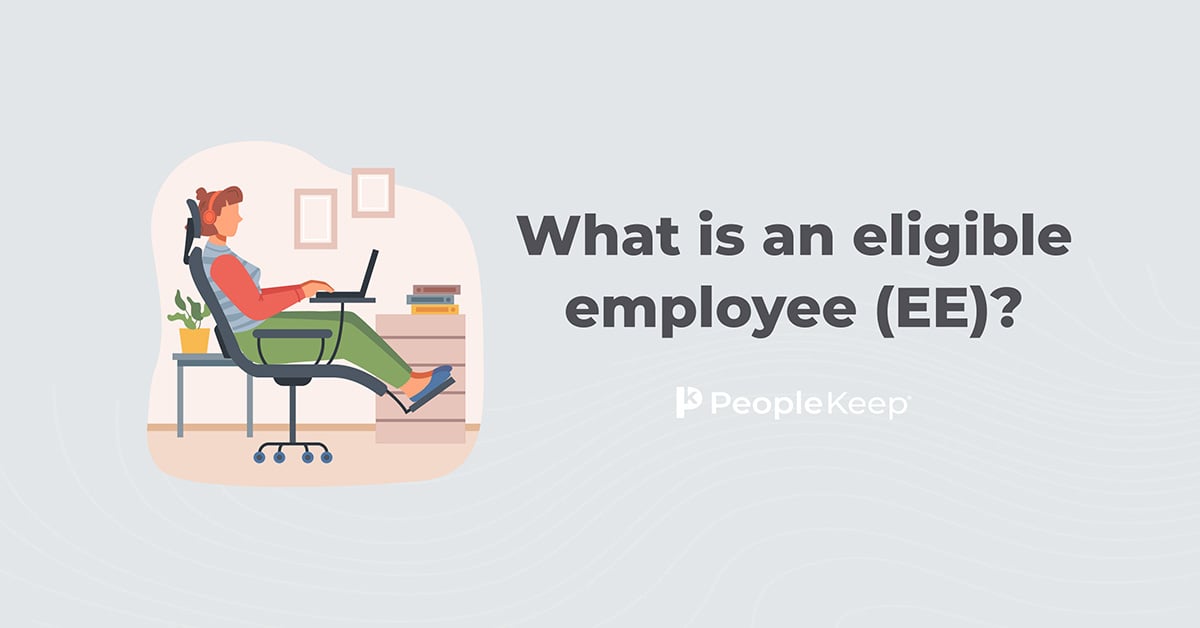Why are employers moving to a four-day workweek?
By Holly Bengfort on October 4, 2023 at 7:45 AM
Many employers are embracing the idea of a four-day workweek, where employees work fewer hours but still receive the same pay as a standard 40-hour week. According to the Society for Human Resource Management1 (SHRM), more than half of American employers offer or plan to offer a four-day workweek.
The move to a four-day week isn't just about giving employees an extra day off from work. This shift in working hours is gaining popularity for several reasons, as employers recognize the benefits it can bring to their workforce and overall business success.
In this article, we'll explore the driving forces behind this shift and go over how it can positively impact your organization.
The growing trend of the four-day workweek
A recent Bankrate survey2 found that the four-day workweek is a coveted employee benefit. Workers want this perk so much that 89% of full-time workers who support a four-day workweek would sacrifice something at work for it in return. Survey results show that 54% of those employees would work longer hours, 37% would change jobs or industries, 27% would work in the office more, and 10% would take a pay cut for a shorter work week.
The traditional five-day workweek has been the standard for decades, but recently, more companies are experimenting with alternative schedules to recruit and retain top talent.
Here's a list of companies3 that enable employees to work four days per week at their full salary:
- Kickstarter
- thredUP
- Basecamp
- Buffer
- Panasonic
- Bolt Financial
- National Parks Conservation Association - NPCA
- DNSFilter
- G2i
- Raisely
These companies maintain a competitive advantage in recruitment and retention since they pay their employees for a 40-hour workweek when they only work 32 hours per week. However, there are variations to the four-day workweek. At some companies, a 32-hour week comes at 80% salary. Other companies have employees work nine- or ten-hour days to compensate for their four-day working week. Some organizations follow a 9/80 schedule where employees work 80 hours in nine days instead of ten. By shaking up the standard workweek, these companies are becoming employers of choice among today's job seekers.
Benefits of a four-day workweek
Let's go over the potential benefits the 32-hour workweek can bring to both employers and employees in more detail below.
Promotes recruitment and retention
Our 2022 Employee Benefits Survey Report found that 79% of employees think flexible work schedules are an extremely important employee benefit. Yet, only 52% of small to midsize business owners surveyed offer it. A four-day workweek offers employees the flexibility they crave. This type of schedule can keep current employees happy and entice potential candidates to apply.
Improved work-life balance
One of the main reasons employers are moving to a four-day week is to promote a better work-life balance for their employees. Traditionally, employees spend five days per week at work, leaving them with limited time to tend to their personal lives.
By reducing the workweek to four days, employees have an extra day to relax, recharge, and focus on their personal lives. This can have a major impact on their physical health and mental health. A study on four-day workweeks from the University of Cambridge4 found that 71% of employees felt less burnout, a 39% decline in stress, and a 65% reduction in sick days. Plus, employees have an extra day to schedule their medical appointments without having to request time off work since many offices are closed on the weekends.
Increased productivity
Contrary to what you might expect, a shorter week can lead to increased productivity at work. When employees have fewer hours to complete their tasks, they often become more focused and efficient in order to meet deadlines. Knowing they have a shorter workweek can motivate employees to prioritize their tasks and work smarter rather than simply working longer hours. Additionally, by having an extra day off, employees return to work refreshed and energized, which can positively impact their performance.
Boosts morale and well-being
A shorter workweek can have a significant impact on employee morale and well-being. Having an extra day off allows employees to engage in activities that promote physical and mental well-being, such as exercising, pursuing hobbies, or spending time with loved ones. This can reduce stress levels and improve overall job satisfaction.
Enhanced employee engagement and retention
Implementing a four-day workweek can significantly improve employee engagement and retention rates. Offering a reduced workweek shows that employers value their employees and recognize the importance of work-life balance. This can foster a sense of loyalty and commitment among employees, leading to lower turnover rates. In a competitive labor market, where talented employees are highly sought after, offering a four-day week can be a powerful recruitment and retention tool.
Positive environmental impact
A four-day workweek can also have positive environmental effects.
According to the United States Environmental Protection Agency5 (EPA), transportation generates the largest share of greenhouse gas emissions. In 2021, transportation caused 28% of U.S. greenhouse gas emissions.
By reducing the number of commuting days, employees can save on transportation costs and reduce their carbon footprint. With fewer employees traveling to work, there's also a decrease in traffic congestion and air pollution. Employers who prioritize sustainability and environmental responsibility may see the implementation of a four-day work as a step toward a greener workplace.
How employee benefits can help your organization
If offering a four-day week isn't feasible for your organization, you can improve recruitment and retention efforts by offering enticing employee benefits.
Our 2024 Employee Benefits Survey Report found that 81% of employees say the benefits package an employer offers is an important factor in whether or not they accept a job.
Here are some of the most popular employee benefits you can offer:
Many employees want a four-day workweek because they enjoy the flexibility it provides. You can make flexibility a key feature of your benefits package by offering employee benefits like a health reimbursement arrangement (HRA) to support inclusion and individual needs. HRAs are employer-funded and IRS-approved. They're often more cost-effective than traditional group health insurance plans. With an HRA, you simply offer a monthly allowance to your employees for their qualifying medical expenses. Depending on the type of HRA you offer, this can include individual health insurance premiums.
Three of the most popular types of HRAs are:
- The qualified small employer HRA (QSEHRA)
- The individual coverage HRA (ICHRA)
- The integrated HRA, also known as a group coverage HRA (GCHRA)
You can also offer customized benefits of any kind through a stipend. Stipends allow you to create meaningful benefits that meet the diverse needs of your employees.
Conclusion
Employers are moving towards a four-day workweek for various reasons, from promoting work-life balance and increasing productivity to enhancing employee engagement and reducing environmental impact. As more companies adopt this flexible working arrangement, it's important to consider the potential benefits it can bring to both employees and the overall success of the business.
- SHRM
- https://www.bankrate.com/personal-finance/hybrid-remote-and-4-day-workweek-survey/?utm_campaign=hrb&utm_medium=newsletter&utm_source=morning_brew#key-insights
- https://www.flexjobs.com/blog/post/remote-flexible-companies-with-4-day-workweek/
- https://www.flexjobs.com/blog/post/remote-flexible-companies-with-4-day-workweek/
- https://www.epa.gov/ghgemissions/sources-greenhouse-gas-emissions#:~:text=Transportation%20(28%25%20of%202021%20greenhouse,share%20of%20greenhouse%20gas%20emissions.
Check out more resources
See these related articles

20 affordable benefits to offer
Looking for affordable ways to enhance your employee benefits package? Explore our list of 20 budget-friendly options to keep your team happy and motivated.

What is an eligible employee (EE)?
An eligible employee, also known as an EE, refers to an individual who meets the criteria to participate in certain employee benefit programs. Learn more in this guide.

Employee burnout: what it is and how to prevent it
Learn the causes and signs of employee burnout, including how to create a positive work environment where employees feel safe and appreciated.



